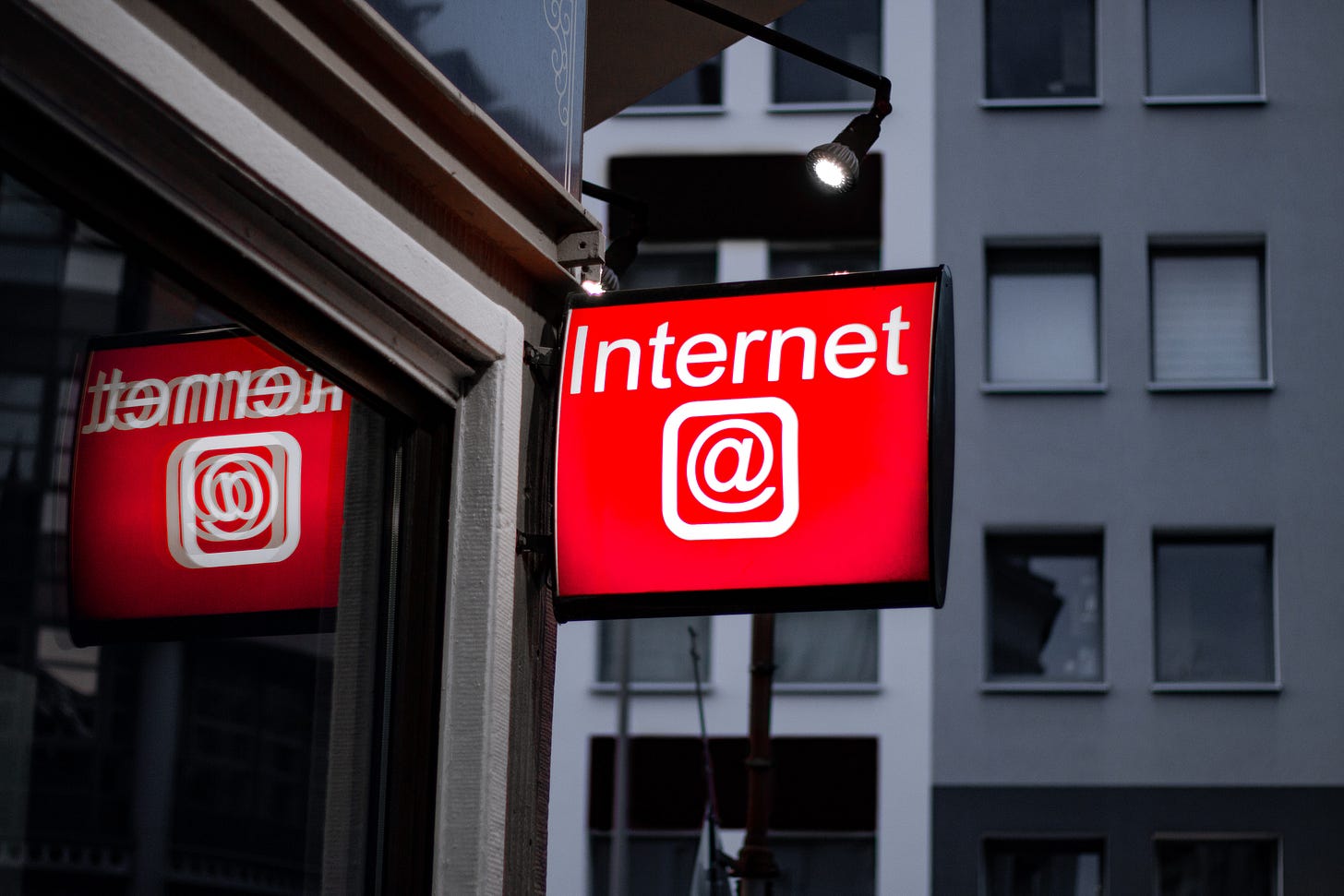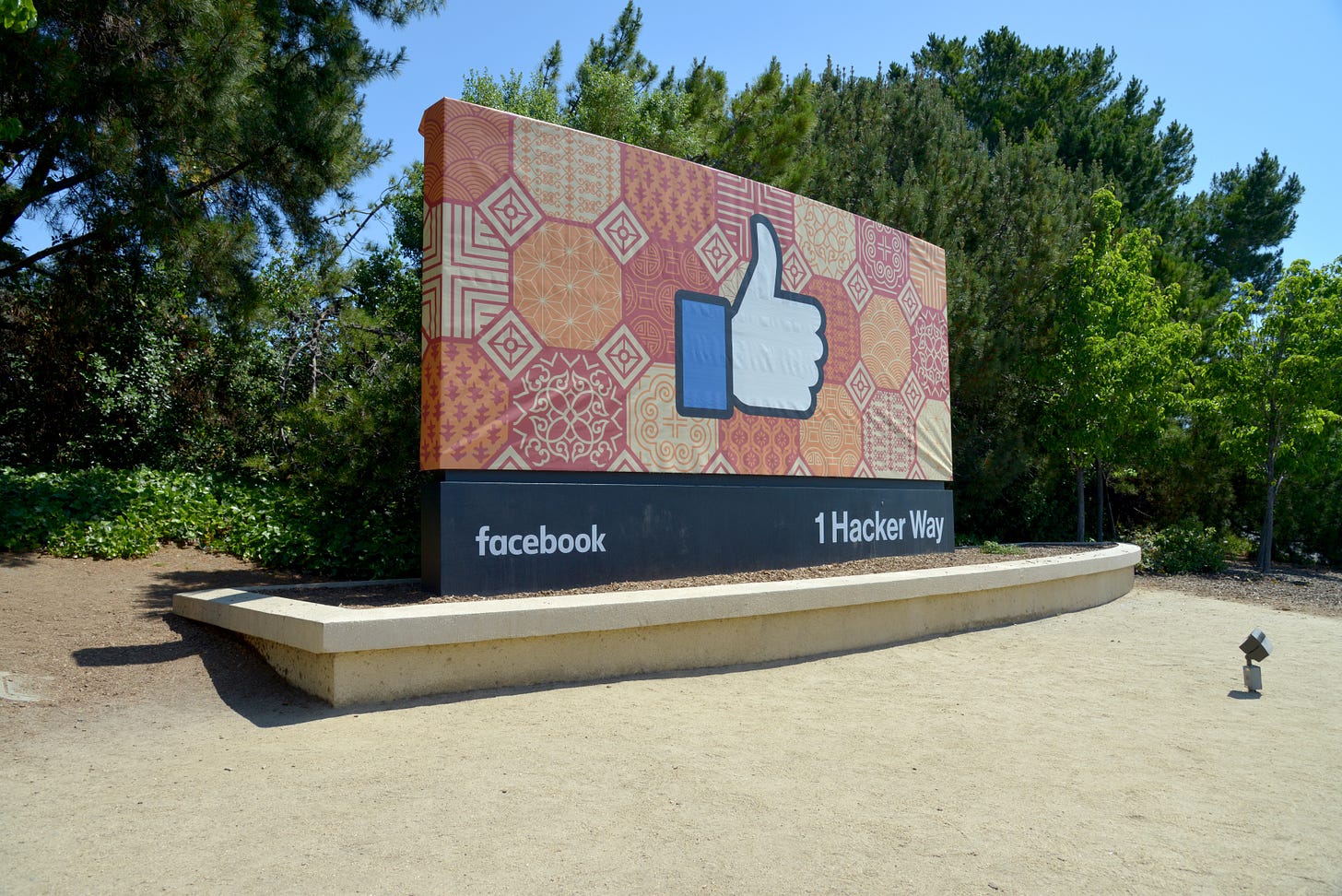How Last Week's Cappuccino Blew Up the Internet
I'm just as surprised as anybody.
On Monday of last week, I wrote Here Are the 12 Things I Will Miss About Italy, which I bookended on Thursday with Here Are the 12 Things I Won’t Miss About Italy.
By the furious backlash I received from various expats, you might have thought I had stomped into their respective living rooms with a billy club and started smashing heirlooms.
Disagreeing with me is fine, but some of these remarks were positively vicious and personal, which surprised me, mystified me, amused me, and then made me angry. This led, of course, to a weekend’s worth of ruminations on the nature of online discourse, how machines—first cars and now computers—are making it easier to dehumanize others, and the peculiar nature of expats themselves.
A great many of us are hiding, we expats. We came here for a reason. The word “hiding” sounds more pejorative than intended. Sometimes there are good reasons why expats bail on their native countries and come to Europe. Life is better here. Significantly better. But this only serves to make these kinds of ad hominem attacks more appalling.
Just because I see Italy’s faults (after nine years, how stupid would I have to be not to?) doesn’t mean I don’t see her virtues. Believe me when I tell you that we wouldn’t be leaving if we didn’t absolutely have to. We don’t have a choice. Most non-emigres don’t realize that non-Italians aren’t allowed to work in Italy. John and I couldn’t legally get a job here washing dishes.
And while there was a brief shining moment of hope last year after Italy—at least on paper—adopted the digital nomad visa that’s working so well for countries like Portugal, just this week, they aggressively hobbled it. Rules governing Italian work permits (decreto flussi) were just released this week, and except for agricultural workers and healthcare aides, it’s not looking good for anybody below retirement age who isn’t already married to an Italian.
Here is the grim reality that most people don’t want to know: Italians don’t want us. Yes, I can already hear the howls of protest. “But everyone is so nice to me! How can you say that?” I can say that because it’s true. Italians being “nice” to you isn’t the same as actually wanting foreigners in Italy. Italians are rightly proud of their country. They want to keep it Italian. It’s not in their bella figura nature to be rude to anybody, including foreigners. That’s not to say individual friends can’t be found among Italians, just that the country at large would rather you come, spend your money, and go.
Need I remind you how Americans treated Italians when they Ellis Islanded their way to the United States a century ago. Or what’s happening in Northern Europe as more Muslims move north. Or in Germany with the “Turk problem.” Emigration and immigration are a worldwide problem, which is only going to get hairier as water dries up and people have nowhere to go.
I do not believe we are programmed to accept people who are different from ourselves, in particular those who are only marginally different. Freud knew this when he coined the phrase “narcissism of small differences” in his 1930 book Civilization and its Discontents, which was based on an earlier work by British anthropologist Ernest Crowley.
In this groundbreaking work, Freud argues that closely related communities, whether religious, political, or ethnic, engage in near-constant conflict because small differences in opinion and lifestyle are more threatening than large ones. Our Western regard for the sanctity of life of the individual, for instance, is not necessarily shared by those in the East where belief in reincarnation deemphasizes the importance of any one existence.
Historically, Baptists hate Catholics, even though they worship the same god, because enough petty differences exist to make Catholics an object of suspicion, and Catholics have traditionally hated Baptists. Working mothers disdain stay-at-home mothers; stay-at-home mothers disdain their working counterparts. Republicans hate Democrats; Democrats, Republicans. Shi’ite Muslims hate Sunni Muslims, and the list goes on. Same religion, of course, but just different enough to stick like a burr underneath another Muslim’s saddle.
In this way, advertisers drive consumer culture, upon which the entire U.S. economy depends. It’s all about feeding people’s need to feel superior to others. We use this with status-and-performative-wealth signifiers like brands, neighborhoods, country clubs. It’s all about how we are intrinsically better than others.
And so it is with many, but by no means all, expats who feel as though they’ve stumbled upon their own Under the Tuscan Sun paradise. In this narrative, they are the heroes of their own universe, their decisions not only unassailable but superior to those made by their compatriots back home. So, when an eyewitness like Yours Truly comes along and challenges that narrative, they take it as an attack on themselves. This is why they came for me with torches, pitchforks, and bloodcurdling screams. This is why they took my “attack” personally.
The question is: would they have had the courage to say these things to my face?
It’s difficult to dehumanize a human sitting right in front of you. Far less risky to criticize them at a remove: on a computer screen, a TV screen, a movie screen, or in a car. I say things/shake my fist/shout expletives to people driving other cars that I wouldn’t dream of saying to their faces. They’re in a machine. When they’re in a machine, on some level, it’s the machine I’m responding to, not the person.
Same thing when we’re behind a keyboard. The ugliest parts of our personalities emerge when we set them loose with no immediate risk to ourselves. If you call me a bitch to my face, there’s always the chance I might punch you. But if you call me a bitch over the internet, you suffer few physical threats to your safety and may even gain followers who are secretly hoping to call me a bitch, too.
As we become increasingly isolated, even in our post-Covid society, it makes me wonder where and how this will end. We’re being Balkanized by our differing viewpoints, which, thanks to social media, are publicly displayed in a way they’ve never been before. We form tiny enclaves of likeminded people, shun outsiders, and huddle together in our like-mindedness, even online, especially online. We feel superior to others (you can’t imagine my disdain for Facebook posts wherein the author expresses patently racist views, usually with misspellings.) And we all do it. We dig our foxholes, and we defend them with all we’ve got.
It’s the ego, of course. And by that, I don’t mean our sense of self or our egotistical conceit, but ourselves as separate from others. Newsflash: we’re not. Despite our small differences, we are very much the same. The ego is the part of the mind that thinks. And thinks. And thinks. With no concrete evidence and quite often with faulty information, we arrive at conclusions about other people that simply aren’t true. And every single day, the consequences of this are becoming more dire.
As always, I default to evolutionary psychology (aka my “panicked monkeys” theorem) to explain what’s happening. As small nomadic herds of frightened, paranoid homo sapiens, we were always alert to the threat that others presented. We were safer together than we were apart. And it doesn’t take an evolutionary psychologist to see that our brains haven’t evolved that much since then. We’re still tribal, only now with the anonymity of a keyboard in front of us.
The ones who aren’t kneejerk tribal, who don’t need to mainline a sense of superiority in order to feel okay about themselves, who instinctively understand you’re heartbroken without needing to have it explained to them … these are your friends.
Hold them close.
And when they need a hand someday, give it to them.
Copyright © 2023 Stacey Eskelin
I love it when you share your thoughts. Be sure to leave your comments in the comments section below.





<string of fun but apparently likely to offend words> ….
I ALWAYS find your posts so refreshing because of their straightforwardness and clear acknowledgement that these are your experiences and why you have formed these impressions. I do NOT live in Italy but have traveled there many times. I’ve gone so far as to acquire dual citizenship. My goal is to visit for a few months at a time each year. I would like to feel a BIT of community more than a tourist. People ask me if I am going to move to Italy. I know they mean well. It’s all I can do to politely say, “no”. I wouldn’t want them to not visit my beautiful, precious adopted second almost home. When they ask “why”, I explain a little about the things they could not know and they are all from the list you wrote. When I was reading your post, I was literally shaking my head up and down and laughing.
I love America but I have NO problem pointing out all of its issshhewwzz. And we have so many. Things for which we have no excuses!
Honestly, I think it only takes an OBSERVANT and CURIOUS (listening) person to understand the cultural differences and difficulties of Italy (or any country, for that matter). If one only stays in a hotel or limits themselves to a gated community or mostly mingles with other expats …. The blast of defensive is unfortunate.
So, feel free to use one of my very own made-up quotes. Are you ready? Ahem.
“Peepz be weird.”
Prego.
💕🇮🇹🇺🇸
Wow... really? I didn't see the comments (nor do I want to). Sucks! On another note, "Welcome home!" ;) I hope to see you sometime this year :)